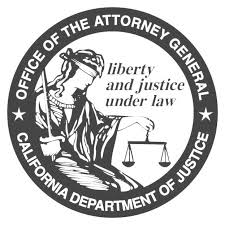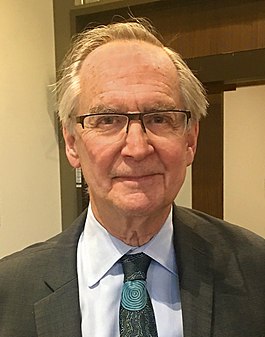Section 7 of the Canadian Charter of Rights and Freedoms is a constitutional provision that protects an individual's autonomy and personal legal rights from actions of the government in Canada. There are three types of protection within the section: the right to life, liberty and security of the person. Denials of these rights are constitutional only if the denials do not breach what is referred to as fundamental justice.
Section 15 of the Canadian Charter of Rights and Freedoms contains guaranteed equality rights. As part of the Constitution, the section prohibits certain forms of discrimination perpetrated by the governments of Canada with the exception of ameliorative programs and rights or privileges guaranteed by or under the Constitution of Canada in respect of denominational, separate or dissentient schools.

Section 16 of the Canadian Charter of Rights and Freedoms is the first of several sections of the Constitution dealing with Canada's two official languages, English and French. Section 16 declares that English and French are the official languages of Canada and of the province of New Brunswick.
Section 23 of the Canadian Charter of Rights and Freedoms is the section of the Constitution of Canada that guarantees minority language educational rights to French-speaking communities outside Quebec, and, to a lesser extent, English-speaking minorities in Quebec. The section may be particularly notable, in that some scholars believe that section 23 "was the only part of the Charter with which Pierre Trudeau was truly concerned." Trudeau was the prime minister who fought for the inclusion of the Charter of Rights in the Constitution of Canada in 1982.
Section 11 of the Canadian Charter of Rights and Freedoms is the section of the Canadian Constitution that protects a person's legal rights in criminal and penal matters. This includes both criminal as well as regulatory offences, as it provides rights for those accused by the state for public offences. There are nine enumerated rights protected in section 11.
Section 17 of the Canadian Charter of Rights and Freedoms is one of the provisions of the Charter that addresses rights relating to Canada's two official languages, English and French. While the section 17 right to use either language within the Parliament of Canada repeats a right already anchored in section 133 of the Constitution Act, 1867, section 17 also guarantees the right to use both languages in the legislature of New Brunswick, the only officially bilingual province under section 16 of the Charter.

Canada (AG) v Lavell, [1974] S.C.R. 1349, was a landmark 5–4 Supreme Court of Canada decision holding that Section 12(1)(b) of the Indian Act did not violate the respondents' right to "equality before the law" under Section 1 (b) of the Canadian Bill of Rights. The two respondents, Lavell and Bédard, had alleged that the impugned section was discriminatory under the Canadian Bill of Rights by virtue of the fact that it deprived Indian women of their status for marrying a non-Indian, but not Indian men.

The Provincial Judges Reference [1997] 3 S.C.R. 3 is a leading opinion of the Supreme Court of Canada in response to a reference question regarding remuneration and the independence and impartiality of provincial court judges. Notably, the majority opinion found all judges are independent, not just superior court judges and inferior court judges concerned with criminal law, as the written constitution stipulates. Unwritten constitutional principles were relied upon to demonstrate this, indicating such principles were growing in importance in constitutional interpretation. The reference also remains one of the most definitive statements on the extent to which all judges in Canada are protected by the Constitution.

Multani v Commission scolaire Marguerite‑Bourgeoys, [2006] 1 S.C.R. 256, 2006 SCC 6 is a decision by the Supreme Court of Canada in which the Court struck down an order of a Quebec school authority, that prohibited a Sikh child from wearing a kirpan to school, as a violation of freedom of religion under section 2(a) of the Canadian Charter of Rights and Freedoms. This order could not be saved under section 1 of the Charter.

Société des Acadiens v Association of Parents is a Supreme Court of Canada decision on minority language rights under section 19(2) of the Canadian Charter of Rights and Freedoms. The majority of the Court held that in civil cases in the New Brunswick courts, the parties have the right to use either French or English in all submissions and pleadings. However, they do not have a right to have the matter heard by a judge who understands them in the language they choose to speak. It is sufficient if there is simultaneous translation. In addition to the majority decision, two other justices of the Court held that the parties did have the right to be heard and understood by the judge in the language of their choice, but on the facts of the case, that standard was met.

R v Mills, [1999] 3 S.C.R. 668 is a leading Supreme Court of Canada decision where the Court upheld the newly enacted rape shield law when challenged as a violation to section 7 and 11(d) of the Canadian Charter of Rights and Freedoms. The rape shield law was the second of its type, the first having been struck down in R. v. Seaboyer. Accordingly, this case is often cited as an example of judicial dialogue.
Jones v New Brunswick (AG) (1974), [1975] 2 S.C.R. 182 is a leading decision of the Supreme Court of Canada on the protection of language rights under the Canadian Constitution. The Mayor of Moncton, Leonard Jones, challenged the federal Official Languages Act, which made both French and English the official languages of the institutions of the federal government. Jones argued that the subject matter of the law fell outside the constitutional jurisdiction of the federal government.
Section 20 of the Canadian Charter of Rights and Freedoms is one of the sections of the Constitution of Canada dealing with Canada's two official languages, English and French. Along with section 16, section 20 is one of the few sections under the title "Official Languages of Canada" that guarantees bilingualism outside Parliament, legislatures and courts. This also makes it more extensive than language rights in the Constitution Act, 1867. Section 20's specific function is to establish a right to English and French services from the governments of Canada and New Brunswick.
Section 19 of the Canadian Charter of Rights and Freedoms is one of the provisions of the Constitution of Canada that addresses rights relating to Canada's two official languages, English and French. Like section 133 of the Constitution Act, 1867, section 19 allows anyone to speak English or French in federal courts. However, only section 133 extends these rights to Quebec courts, while section 19 extends these rights to courts in New Brunswick. New Brunswick is the only officially bilingual province under section 16 of the Charter.
Section 18 of the Canadian Charter of Rights and Freedoms is one of the provisions of the Constitution that addresses rights relating to Canada's two official languages, English and French. Like section 133 of the Constitution Act, 1867, section 18 requires that all statutes and other records made by the Parliament of Canada must be available in both official languages. Section 133 places a similar obligation on the legislature of Quebec, and this is reaffirmed by section 21 of the Charter. Section 18 of the Charter places a similar obligation on the legislature of New Brunswick. New Brunswick is the only officially bilingual province under section 16 of the Charter.

R v Hess; R v Nguyen, [1990] 2 S.C.R. 906 is a decision of the Supreme Court of Canada where the Court struck down part of the Criminal Code offence of rape as a violation of section 7 of the Canadian Charter of Rights and Freedoms.

Charlebois v Saint John [2005] 3 S.C.R. 563 was a decision by the Supreme Court of Canada on minority language rights in New Brunswick. The Court found no statutory obligation on municipalities for bilingualism in court proceedings.
Because the country contains two major language groups and numerous other linguistic minorities, in Canada official languages policy has always been an important and high-profile area of public policy.
In Canada, the term quasi-constitutional is used for laws which remain paramount even when subsequent statutes, which contradict them, are enacted by the same legislature. This is the reverse of the normal practice, under which newer laws trump any contradictory provisions in any older statute.
The passage of the Canadian Charter of Rights and Freedoms in 1982 allowed for the provision of challenging the constitutionality of laws governing prostitution law in Canada in addition to interpretative case law. Other legal proceedings have dealt with ultra vires issues. In 2013, three provisions of the current law were overturned by the Supreme Court of Canada, with a twelve-month stay of effect. In June 2014, the Government introduced amending legislation in response.











